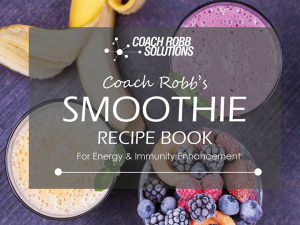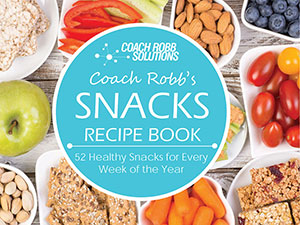Strategies to Boost Energy Throughout the Day
- Do not skip breakfast. As you sleep through the night your body depletes its sugar storages (glycogen) needed to make your muscles and brain work their best. Starting the morning with breakfast increases your metabolism and energy, improves concentration and productivity, and reduces the risk of binge eating later in the day. If you wake up and immediately start working out, especially high intensity training such as weightlifting or intervals, the productivity of that workout will not be as high as if you had taken the time to eat breakfast.
- Eat throughout the day to stabilize blood sugar. Stabilizing blood sugar throughout the day helps prevent you from experiencing foggy brain, becoming irrational, and incurring poor athletic performance and choices (this is incredibly important when riding the motorcycle!) This is also the number one catalyst for hitting the fast food drive-through or binge eating on foods that are typically low in nutrients, high in simple sugars, and processed starches. By snacking on fruits, vegetables, and lean proteins every two hours, your body gets nutrient-rich food, natural electrolytes, and appetite-satisfying proteins and fats that will keep energy levels sustained throughout the day.
- Sleep 8-10 hours a night. In the realm of performance, sleep is the most underestimated component to creating energy and getting faster. Sleeping 8-10 hours a night is essential for recovery and for absorbing the work and load we put our bodies under as we train and race. When we sleep the body goes through three stages – light sleep, REM or transitional sleep, and deep sleep. Our goal is to get to deep sleep for as long and as often as we can. This is because deep sleep is where the body releases hormones, the most important being hGh which facilitates recovery and testosterone which increases the red blood cell count. Red blood cell count dictates the amount of oxygen in the blood. The more oxygen you have in the blood, the more energy you will have. To help facilitate getting deep sleep, try a few of the following suggestions: make your bedroom as dark as possible, keep the room cold, do not watch television or get on the computer in bed, go to bed physically satisfied, consume a protein and fat snack before bed such as an ice cream smoothie or yogurt with fresh fruit and whipped cream.
- Drink adequate amounts of water. A cell membrane is 70% water. Cells are responsible for carrying oxygen to working muscles. When the cell becomes dehydrated the surface area of the cell becomes smaller and the heart must work harder to get enough oxygen to sustain basic metabolic needs, not to mention athlete performance. When you consume half your body weight in ounces of water over an 8-10 hour period, snack on fruits and vegetables which are naturally high in water content and electrolytes (natural pre-hydration), and know your sweat rate associated with your training or racing efforts, you have set the stage for optimum health, wellness, and ultimately performance. If any of these three do not occur, in addition to experiences kidney stones, you will have increased muscular friction associated with the muscles, fascia, and skin sticking together. This will have a negative affect on your sprint speed, muscular strength, and muscular endurance, all necessary to train, ride, and race optimally.
Nutrition to Improve Energy
Have you heard the saying “You are what you eat”? When it comes to creating energy, what you eat can have a huge impact – both positively and negatively – on your energy levels. Certain foods can boost energy levels, stabilize blood sugar levels, and increase your metabolism so you can burn more calories. Conversely, foods high in simple sugars such as soda and processed foods may give you an energy spike for an hour, but likely will cause you to crash soon after.
What are Mitochondria and What Role Do They Play in Boosting Energy?
Mitochondria are organelles found inside every living cell. Their primary function is to supply cellular energy (known as adenosine triphosphate or ATP), as well as to control the cell cycle and cell growth. Some cells have more mitochondria than others, such as the brain, heart, and muscles. They are vitally important to energy levels so the healthier your mitochondria, the more energy you will have! They are also needed to help protect the body from oxidative stress which can occur from high intensity training or excessive stress to the body. Eating an anti-inflammatory diet is one of the best ways to improve mitochondrial function.
The Top 10 Catalysts for Energy
1 –Known as the “energy” vitamins, B vitamins are important for maintaining cell health. There are eight B vitamins. Aside from B12, your body cannot store these vitamins for long periods, so you must replenish them regularly through food. Foods rich in B vitamins include salmon, leafy greens such as spinach, turnip greens, and romaine lettuce, liver, eggs, milk, lean beef, oysters, clams, mussels, legumes, chicken, turkey, and yogurt. Recommended supplements: Frontier Multi
2 – Zinc is an antioxidant with anti-inflammatory properties. Adequate intake of zinc is important for maintaining mitochondrial function which is to produce energy. Sources for zinc include oysters and mussels, grass-fed beef, cashews, and pumpkin seeds. Pumpkins seeds are also rich in magnesium (another key nutrient for mitochondria health).
3 – Coenzyme Q10 or CoQ10 acts similarly to other antioxidants in protecting our cells from oxidative stress and damage. Most important (for this topic), it aids in the production of energy. While our bodies naturally produce it, this declines with age. Some food sources for CoQ10 include eggs (particularly the yolks), extra virgin olive oil, butter, tuna, herring, mackerel, and anchovies. Due to the lack of nutritional sources CoQ10, we recommend taking a high-quality supplement such as Power CoQ10 600
4 –Magnesium aids in the production of ATP which produces energy. The best food sources for magnesium are leafy greens such as spinach, almonds, seeds, avocado, banana, and cacao. Magnesium can have a calming effect on the body and may improve sleep quality. Better sleep means more energy throughout the day! Recommended supplements: Frontier Multi
5 –Omega-3’s are known to improve mitochondrial function. Foods such as avocados, walnuts, salmon, halibut, sardines, and anchovies are rich in omega-3 fatty acids and help to enhance memory, cognition, and overall moods. Recommended supplements: Omega 3D II
6 – The antioxidant plant molecule resveratrol is known to improve mitochondrial function making red grapes, red wine, dark chocolate, and pistachios beneficial to your energy levels.
7 – Foods high in healthy mitochondrial-boosting polyphenols are typically dark blue, red, and purple such as blueberries, blackberries, raspberries, and cherries. Coffee is also rich in polyphenols although milk products drastically reduce the available polyphenols, so we recommend using a non-dairy substitute. Recommended supplements: Pro Purples, Pro Reds
8 – Iron – Being low on iron can lead to iron-deficiency anemia, which can make you feel tired and run down. Young women are especially at risk because they lose iron in their menstrual blood during their periods. Good sources of iron are lean red meat and green vegetables.
9 –Beets are amazing for improving athletic performance. They are high in dietary nitrates, which have been shown to potentially reduce the oxygen cost of exercise by enhancing mitochondrial function, allowing for higher intensity exercise with less perceived effort. Recommended supplements: Frontier Multi
10 – Citrus – Fruits high in vitamin C such as grapefruit and oranges contain antioxidants that improve the function and resilience of the central nervous system, help to improve cognitive function, and protect against oxidative damage to the mitochondria where energy is created. Recommended supplements: Pro Oranges
For smoothie and snack ideas designed to boost energy and enhance immunity, check out Coach Robb’s Smoothie & Healthy Snacks Recipe books below. Available in both digital and print formats.
 Coach Robb’s Smoothie Recipe Book features over 50 ways to combine fruits and vegetables to create delicious smoothies. Each provide essential nutrients while creating energy, helping with recovery, and supporting the immune system.
Coach Robb’s Smoothie Recipe Book features over 50 ways to combine fruits and vegetables to create delicious smoothies. Each provide essential nutrients while creating energy, helping with recovery, and supporting the immune system.
 Coach Robb’s Snacks Recipe Book compiles 52 easy and nutritious snack favorites – a perfect snack for every week of the year! Take the confusion out of what to snack on throughout the day to keep your blood sugar stabilized, stay mentally focused, and perform to the best of your ability.
Coach Robb’s Snacks Recipe Book compiles 52 easy and nutritious snack favorites – a perfect snack for every week of the year! Take the confusion out of what to snack on throughout the day to keep your blood sugar stabilized, stay mentally focused, and perform to the best of your ability.


